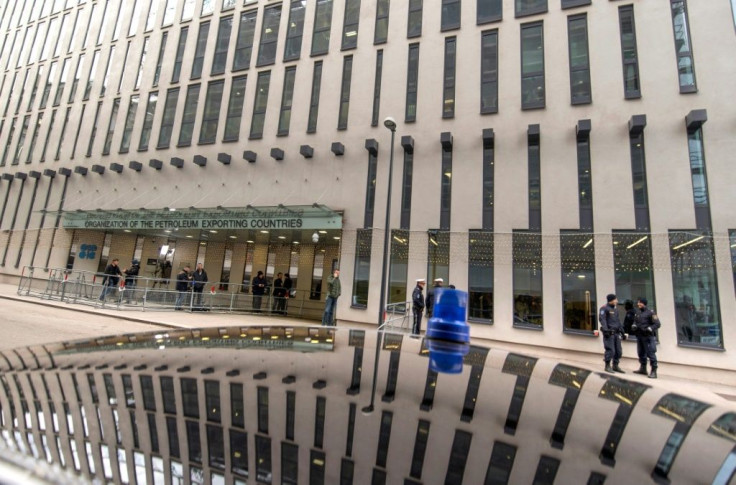OPEC And Allies Strike Deal For Lower Production Hike From January
Members of the OPEC group of oil producers and their allies struck a deal Thursday to increase production over coming months, but by less than anticipated in their previous accord.
A statement issued after a video-conference meeting of the countries in the OPEC+ club said that from January 2021 they would raise production by 500,000 barrels per day.
The previous agreement entailed a cut of 7.7 million barrels per day (bpd) and had been scheduled to be eased to 5.8 million bpd on January 1.
The statement issued on Thursday also said that monthly OPEC+ meetings would be held "starting January 2021 to assess market conditions and decide on further production adjustments for the following month, with further monthly adjustments being no more than" 500,000 bpd.
The video-conference meeting of the OPEC+ grouping was pushed back from Tuesday and came after three days of inconclusive discussions among the 13 members of OPEC proper.
Observers say the postponement pointed to an agreement being harder to reach than initially thought.
Representing Russia, the most important non-OPEC player in the group, Deputy Prime Minister Alexander Novak hailed the agreement as a "very balanced decision" but admitted talks had been "difficult".
Novak told a news conference after the meeting :"We confirmed that two million bpd at some point need to return to the market."
But he added that the "easing of cuts will come gradually, keeping in mind we should not harm the market".

The first wave of the coronavirus pandemic sent oil demand -- and prices -- plummeting in the spring, with the benchmark American contract even going into negative territory for the first time in history.
Despite the second wave of the pandemic dashing hopes of a rapid "V-shaped" recovery for the economy and for oil demand, Saudi Energy Minister Prince Abdelaziz bin Salman struck a sanguine note after the meeting.
"There are serious lockdowns, but they are not hindering demand as they were in the first wave," he told the post-meeting news conference, adding: "The jury is still out, and we want to be cautious."
Thursday's deal represents a compromise between those who were arguing for a full extension of the cuts in the previous agreement and those who want to keep to the original timetable.
A recent surge in crude prices -- up by 25 percent over the course of November -- together with positive news from several companies on coronavirus vaccines meant some countries had been sceptical of the need for further sacrifices.
Analyst Paola Rodriguez Masiu at Rystad Energy called Thursday's deal "a decision that was not really expected by the market".
Nevertheless, "500,000 bpd from January is not the nightmare scenario that the market feared" she wrote, adding that the "small increase also gives traders room to breath and better assess the expected roll-out of a vaccination campaign".
Prices for both the US crude oil benchmark West Texas Intermediate (WTI) and Europe's Brent North Sea finished trading on Thursday up almost one percent at $45.64 and $48.71 respectively.
Meanwhile, the perennially thorny subject of whether all members are respecting production quotas laid down in previous agreements was once again on the table.
Those who have recently been overproducing, such as Iraq and Nigeria, have been given a deadline of the end of March to bring their production into line.
In the medium term, the cartel will also have to watch developments in certain members which have been given exemptions from quotas but where production is rising or may do in future, namely Libya and Iran.
© Copyright AFP 2024. All rights reserved.



















